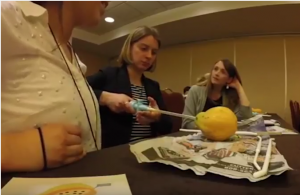Clinical schools should utilize different instructing techniques that empower understudies to gain CLINICAL SKILLS TRAINING . A portion of the fundamental strategies that impact understudies mastering of essential commonsense skills incorporate mimicked acquiring, media guidance, PBL, course, and logic learning like talks and research centers.

Recreation
Conventional clinical schooling and preparing have consistently stressed understudy cooperation with genuine patients in clinical settings. Though a recreation climate permits the clinical understudies and rehearsing clinicians to learn, practice, and rehash methods as regularly as important to address botches, conquer ineptitudes, tweak skills, and upgrade clinical results. Recreation alludes to the counterfeit portrayal of a mind-boggling true interaction with adequate loyalty to accomplish a specific objective, for example, in preparing or executing testing. A definitive point of the recreation is to work with the learning interaction through submersion in the clinical situation, reflection, input, and practice less the dangers innate in a comparable genuine encounter. Constancy is the standard business term usually utilized in the recreation world to depict the level of authenticity and specialized intricacy of models which is directed by the requirements of the application.
There are fundamentally five sorts of actual recreation settings, specifically, (1) off-site reenactment in the reproduction community, (2) off-site recreation in-house in the division, (3) in situ reproduction, (4) in situ reproduction declared, and (5) in situ recreation unannounced. The investigation by Sørensen et al. presumed that notwithstanding having various recreations, the decision of actual setting for reproductions doesn’t impact the learning for people or groups.
To be a viable schooling apparatus, reproduction mix can be accomplished through an interdisciplinary methodology. To give the best nature of training and granting clinical skills to the undergrad clinical understudies in preclinical years, the reenactment learning stages must be given a high need by delegating a devoted program chief, designating capital hardware, a committed financial plan, and office space for ideal execution.
Gamified preparing stages
Since clinical training is quickly developing with mechanical advances, numerous clinical schools are receiving and empowering innovation, improved dynamic learning and mixed media instruction applications. Gamified preparing stages incorporate instructive games, portable clinical applications, and virtual patient reproductions.
- Electronic games are “informative techniques” requiring the student to partake in a cutthroat action with preset guidelines
- Clinical versatile applications are clinical programming applications utilized on handheld gadgets like individual advanced collaborators, phones, or tablet gadgets
- Virtual patient recreations are intuitive PC reenactments of genuine clinical situations for clinical preparation, training, or evaluation. These learning practices give “arranged learning,” an interaction whereby students acquire direction to an expert culture by taking part in exercises of the training through a restricted, tutored apprenticeship, steadily accepting accountability over the long haul.
Gamification is “the cycle of game reasoning and game mechanics to connect with clients and tackle issues.” Game-based learning (GBL) in clinical training is arising as a substantial option in contrast to customary educating techniques. All around planned GBL meetings utilize non-undermining contests to profit by increased student excitement, taking into consideration significant level commitment and dynamic gathering conversation. Particular, deliberate gamification that lines up with learning objectives can expand student inspiration and commitment and eventually, learning. By the self-assurance hypothesis, game plan components can be utilized to improve students’ sensations of relatedness, self-sufficiency, and capability to encourage students’ natural inspiration.

